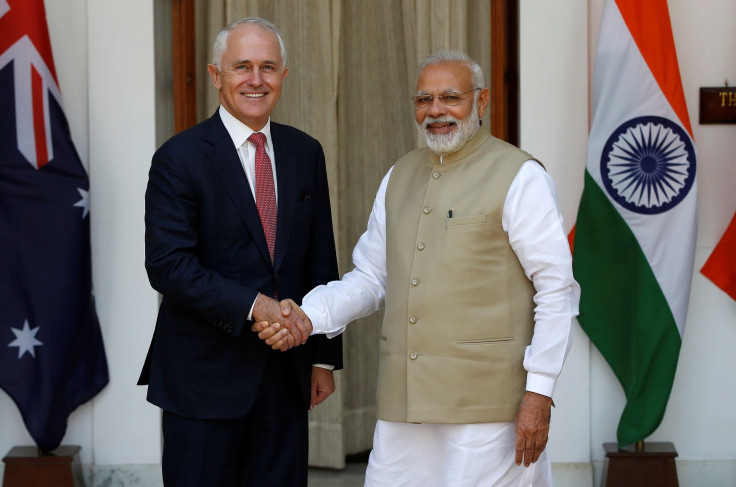Australia, India to 'pursue continued growth in trade'

Prime Minister Malcolm Turnbull discussed with Indian Prime Minister Narendra Modi the prospect of exporting more coal to India and enhancing the number of Indian students travelling to Australia during his first day of visit to the country. However, he underplayed the prospect of a free trade deal between the two countries.
“It is a process that will take some time,” Turnbull said. “India has a long history of protection, particularly for agriculture. We are a huge agricultural exporter. We want to have open markets for everything, but in particular agriculture. So it will take some time but the important thing is to persevere.”
In their discussions, the two leaders are expected to pay emphasis to matters concerning energy and education. A key role in India’s effort to expand power across the country is Australian coal.
Turnbull started the first day of his visit to India on Monday. He was greeted by Modi on the parade ground of the Rashtrapati Bhavan, the official home of the Indian President. Turnbull will subsequently visit the Hyderabad House, Modi’s official residence. The two prime ministers will be talking about increasing investment and trade, strategies to engage Australia and India’s security ties and improving border security.
Turnbull and 120 officials from Australia’s university and technical education sector visited a university expo in New Delhi in an effort to encourage more students to travel to Australia. Education Minister Simon Birmingham is also currently in India. He is leading a delegation constituting of vice-chancellors and other Australian education officials.
Departing Papua New Guinea on Sunday, Turnbull lauded India, describing it as a “giant, vibrant democracy.” In 2015, two-way trade between Australia and India accounted for $18 billion. However, it has sunk since a decade ago. A large part of this can be attributed to the decline in the number of Indian students travelling to Australia in the wake of the attacks on young foreign students in 2009 and 2010.
Turnbull suggested it is not likely a bilateral trade deal will be agreed upon during his visit. Discussions concerning the same have been delayed since mid-2016. “We will pursue continued growth in trade between Australia and India. There is no point setting a target for an agreement without having regard to the quality of the agreement,” he said. “You can sign an agreement any time — it’s a question of whether it’s got the provisions that make it valuable or worthwhile from Australia’s point of view.”
Source: YouTube/T News





















